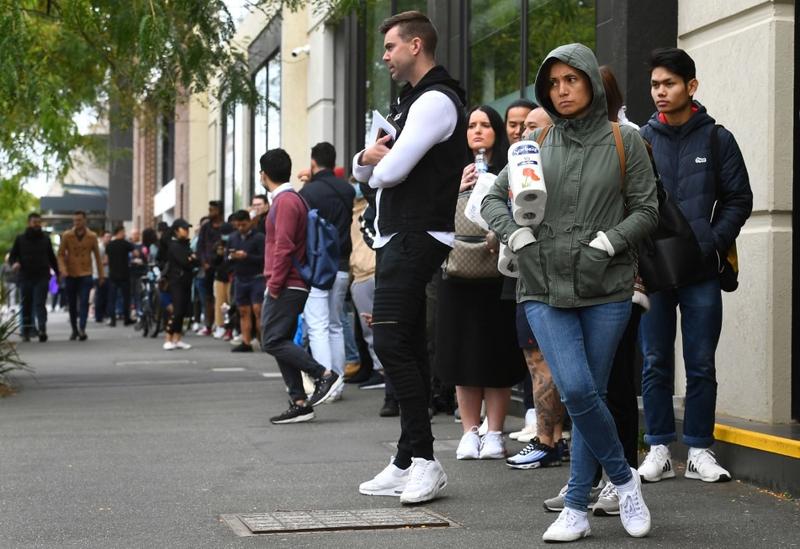 In this March 23, 2020 file photo, hundreds of people queue outside an Australian government welfare centre, Centrelink, in Melbourne, as jobless Australians flooded unemployment offices around the country after Prime Minister Scott Morrison warned the coronavirus pandemic would cause an economic crisis akin to the Great Depression. (WILLIAM WEST / AFP)
In this March 23, 2020 file photo, hundreds of people queue outside an Australian government welfare centre, Centrelink, in Melbourne, as jobless Australians flooded unemployment offices around the country after Prime Minister Scott Morrison warned the coronavirus pandemic would cause an economic crisis akin to the Great Depression. (WILLIAM WEST / AFP)
GENEVA - Young people who have lost jobs or schooling during the COVID-19 pandemic risk carrying "scarring effects" throughout their working lives unless governments provide immediate support, the International Labour Organization (ILO) said on Tuesday.
ILO urged governments to help reintegrate jobless youth into labour markets, or provide educational training and unemployment insurance benefits
An ILO poll of 12,000 youths in 112 countries showed in May that more than one in six people under 24 had stopped working during the pandemic, while the UN agency said in its latest report that more than 70 percent of students had also seen closures of schools, universities and training centres.
It urged governments to help reintegrate jobless youth into labour markets, or provide educational training and unemployment insurance benefits.
"The COVID-19 pandemic has a systematic, deep and disproportionate impact on young people," Sangheon Lee, director of ILO's employment policy department, told a news briefing.
ALSO READ: HK unemployment rate rises to highest since 2009
Evidence from previous crises suggests young people who lack access to job opportunities when entering the labour market face ongoing consequences throughout their working lives, he said. "That is what we call 'scarring effects'."
Young women and youths in low-income countries are among the hardest hit, he said.
"Unless urgent action is taken, young people are likely to suffer severe and long-standing impacts from the pandemic. We believe there is a genuine risk of the 'lockdown generation' who actually will be scarred throughout their working lives," Lee said.
The pandemic has left 1 in 8 young students without any access to education or training, although those in wealthier countries had more access to online classes, Lee said.
"It's important to remember that risk is not just about the job losses," he said.
"Even for those who have remained employed after the onset of the pandemic, their working hours fell by nearly a quarter and two out of five young people reported a reduction in their incomes," he said.
READ MORE: Indonesia's Ramadan school moves online amid virus
Some 17 percent of young people reported suffering from anxiety and depression, nearly twice the rate as those still employed, Lee said. "It is not surprising at all that their mental well-being suffered a lot," he said.



